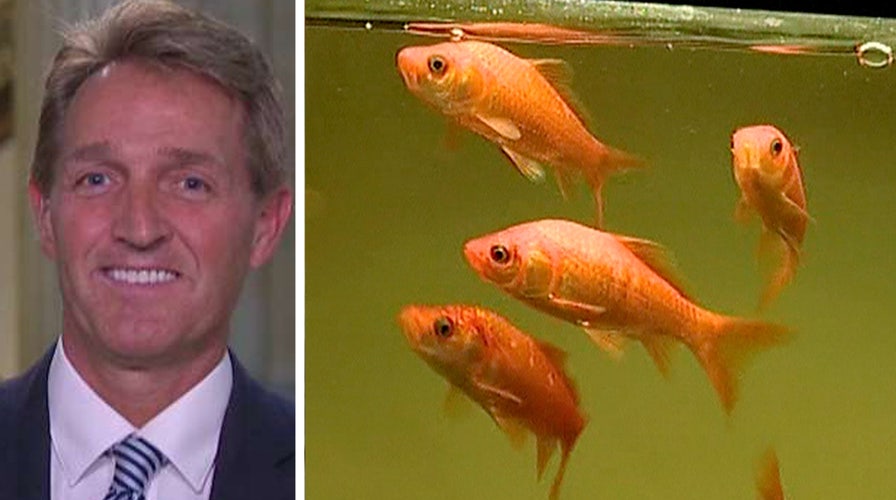Sen. Jeff Flake's list of wasteful gov't research studies
Would you fund a study on what makes goldfish feel sexy?
What makes goldfish feel sexy? How many shakes does it take for a wet dog to dry off? And really -- how much does a bee sting on a penis hurt?
Government-funded studies have spent millions of taxpayer dollars to answer bizarre questions like these, according to a new survey of questionable spending released Tuesday by Sen. Jeff Flake, R-Ariz.
“Twenty Questions: Government studies that will leave you scratching your head” highlights a selection of "wasteful" taxpayer-funded studies that cost a total of $35 million.
Flake said the money could have been better spent treating cancer or Alzheimer’s disease. "When federal agencies don’t spend our limited research dollars wisely, they’re not just wasting money, they’re missing opportunities, and we can’t afford either," he said in a statement.
The most cringe-worthy item highlighted by the report was a study -- part of a $1 million National Science Foundation grant to Cornell University -- for which researcher Michael Smith had a bee sting him roughly 200 times on 25 parts of his body and rated how much it hurt.
His penis was one of those parts.
According to the report, the researcher grabbed the bee by the wings and "pressed against the desired sting location." The stinger "was left in the skin for 1 minute, then removed with forceps."
The study found that being stung on the penis (pain rating of 7.3) hurt more than being stung on the scrotum (7.0) or nipple (6.7) -- but less than being stung on the upper lip (8.7) or the nostril (9.0).
“Stings to the nostril were especially violent, immediately inducing sneezing, tears and a copious flow of mucus,” according to Smith. "By the time I got round to the third round, I thought: I really don’t want to do my nose again.”
Other examples in Flake's report include a $3.9 million grant to study the courtship behavior of goldfish and the impact of hormones on that behavior.
Another was a project funded by a $390,000 National Science Foundation grant that used high-speed videography and fur particle tracking to study the shakes of 33 wet animals -- including dogs, mice, cats, otters, squirrels, kangaroos, lions, tigers and bears.
Other questions asked by studies featured in Flake’s survey included whether humans could outrun a dinosaur, whether drunk birds slur when they sing and whether cheerleaders are more attractive as a squad.
Flake has introduced the a bill to ensure federal dollars are not wasted on what he called lesser priorities.
“We ought to reevaluate a system that spends federal funds looking for America’s next top model over a cure for cancer,” Flake said in a statement.






















